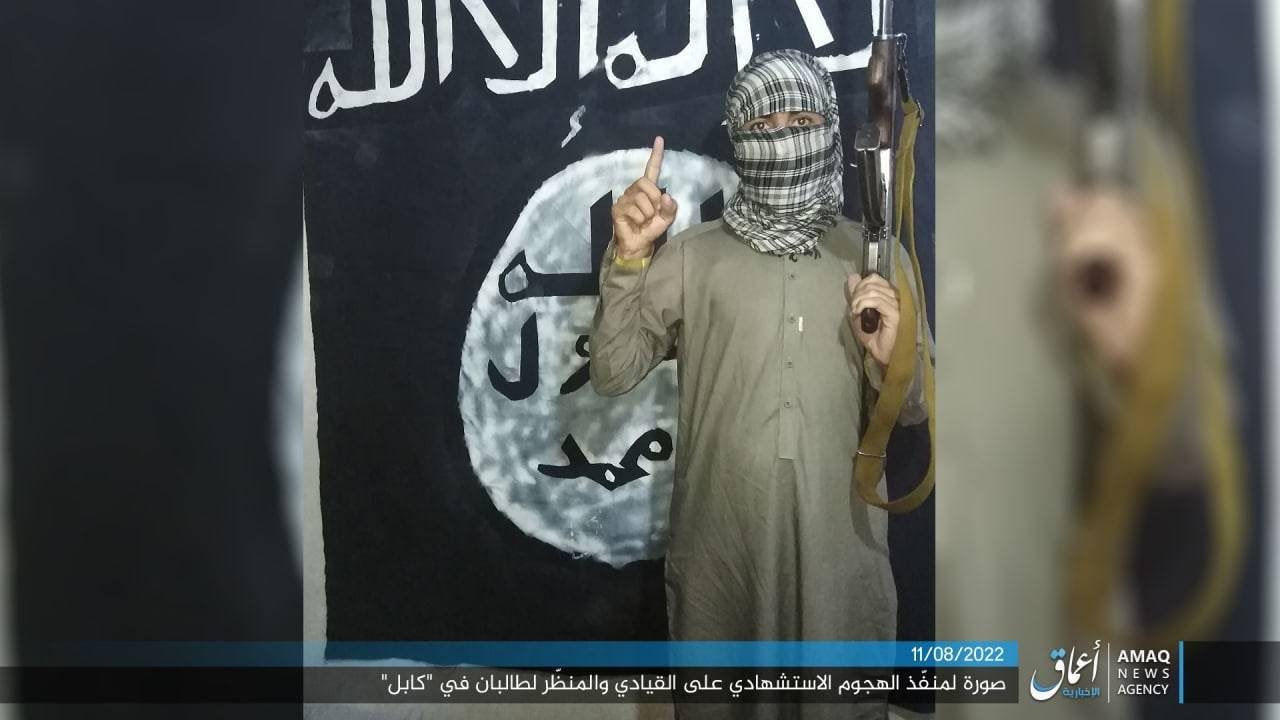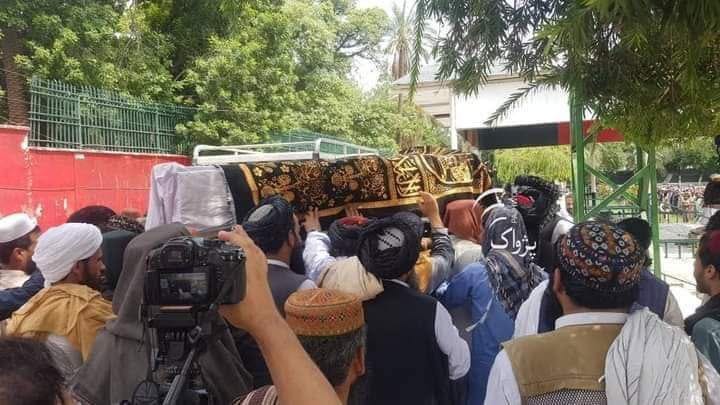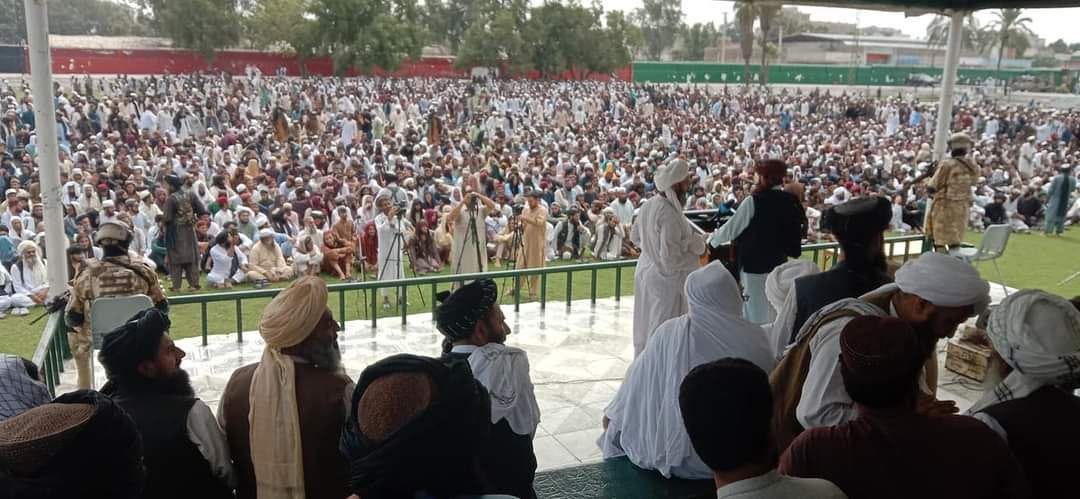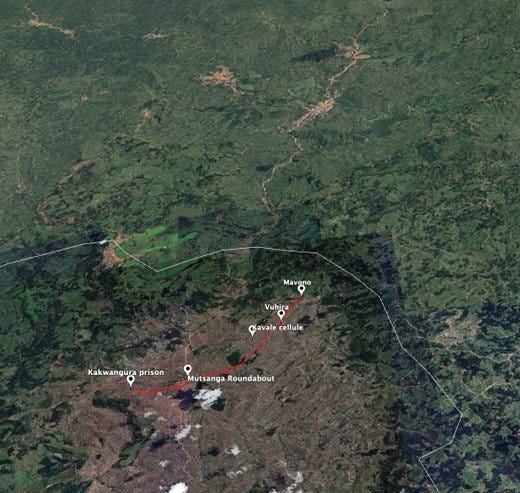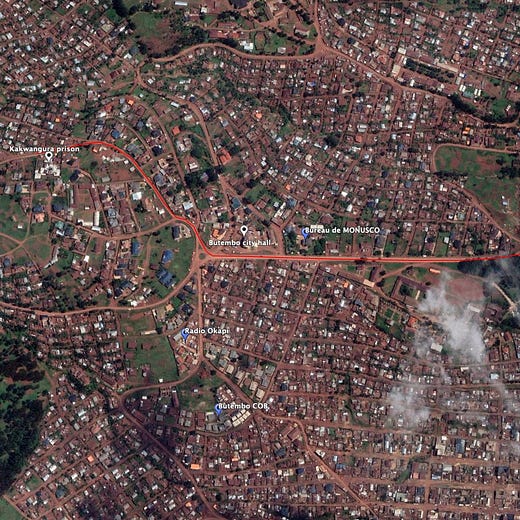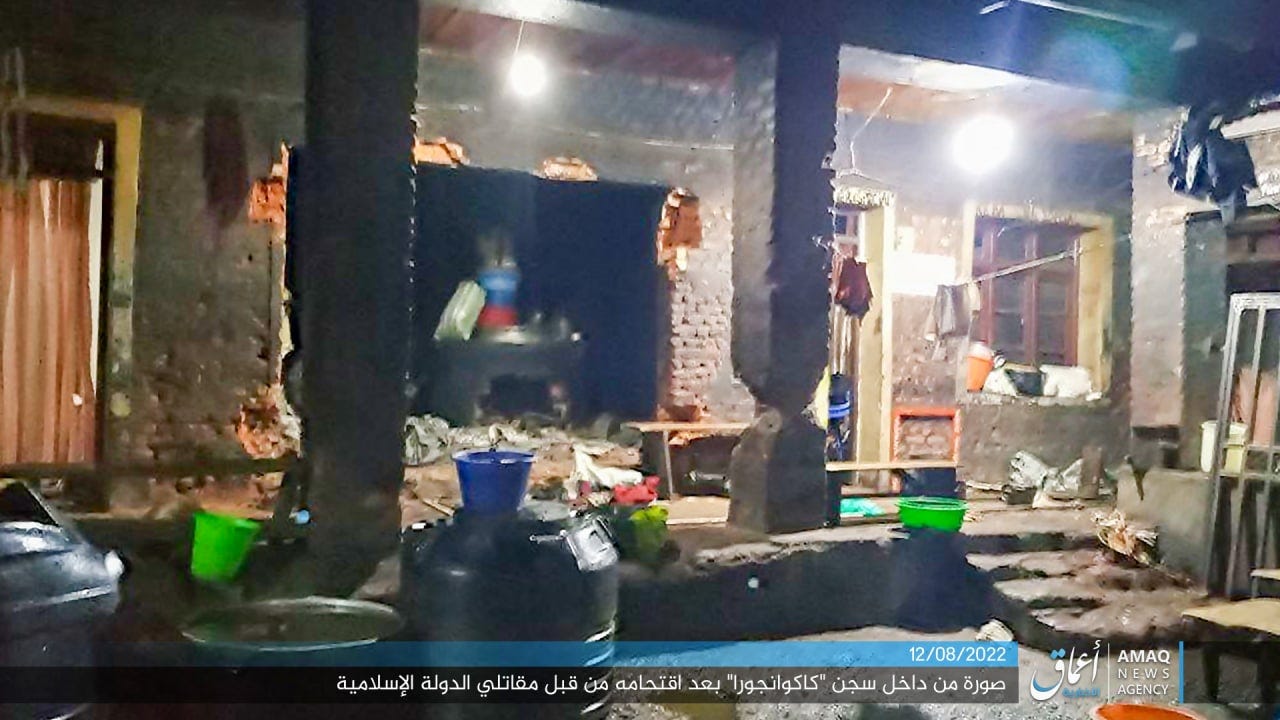MW Weekly: ISKP Kills Leading Taliban Ideologue; Italian Anarchists Claim Parcel Bomb; Islamic State Frees Hundreds in Congo Prison Attack
ISKP Kills Sheikh Rahimullah Haqqani in Kabul
On August 11, an explosion in Kabul targeted the seminary of top Afghan Taliban ideologue Sheikh Rahimullah Haqqani, killing him together with several guards. Moments after the explosion, the Taliban’s deputy speaker Bilal Karimi indeed confirmed the death of the Sheikh. Hours later, Islamic State Khurasan Province (ISKP) took claim for the attack, stating that one of its fighters, Khaled Logari, carried out an istishhadi operation inside the seminary. The group then issued a second detailed statement describing how Khaled Logari bypassed all security checks of the Taliban and detonated his explosive jacket inside the office of Sheikh Rahimullah. As The Khorasan Diary initially reported, Khaled Logari is believed to have hidden the explosive inside his prosthetic limbs, as also a video of the dead attacker circulating on pro-Taliban social media suggested. Along with Sheikh Rahimullah, also his brother Maulvi Naqeebullah was killed.
Sheikh Rahimullah Haqqani originally was from the village of Mala Feroze, Pachir Aw Agam district of Nangarhar. An important Deobandi scholar respected both in Pakistan and Afghanistan, Sheikh Rahimullah was known for his fiery sermons against Shias and Salafis, particularly those of ISKP, making takfeer on the group and issuing a fatwa which allowed the killing of all ISKP captives by the Taliban. As research analyst Abdul Sayed noted in his recent (highly recommended) article, while he taught in several seminaries, he used to teach at the Zubairah madrassa near the Spin Jumat, Dir Colony, Peshawar, where in October 2020 he was also targeted in an explosion which hit the seminary, though he survived. He also used to engage in harsh religious debates with Salafis, and hailing from Nangarhar, he gave battle speeches to Taliban units fighting on the frontline against ISKP militants during the Nangarhar campaign in 2019.
He was buried next to the Al-Fateh Mosque of Ishaf Safi Madrassa in the city of Jalalabad along with his brother.
The assassination of Sheikh Rahimullah Haqqani is a huge blow to the Afghan Taliban and a great victory for ISKP, as they eliminated one of their leading ideological enemies who advocated for the extermination of the group and did not differentiate between “Wahhabis” (Salafis) and “Daeshis” (ISKP). Worryingly, this is the latest development of a long series of targeting killings between Salafis and Hanafis/Deobandis in Afghanistan and Pakistan which could potentially spark a wider sectarian conflict between the two sects. In the recent past, ISKP has accused the Taliban of killing common Salafis and Salafi scholars, such as Sheikh Sardar Wali, Mullah Obaidullah Mutawakkil, and Sheikh Abu Mustafa Darwishzadeh, while ISKP has frequently targeted Deobandi scholars affiliated with the Taliban in Bajaur.
- Analysis by Riccardo Valle
Italian Anarchists Claim Parcel Bomb Targeting CEO of Defense Firm
This week, a cell of the international network of insurrectionary anarchist groups rooted in Italy has claimed a parcel bomb that was mailed to the CEO of a large Italian defense contractor, Leonardo S.p.A. The “Brigata Augusto Masetti” of the Federazione Anarchica Informale (Informal Anarchist Federation—FAI) sent a parcel bomb to the company’s Rome headquarters addressed to the CEO, with the sender address of an Italian law firm, on June 27th.
According to Italian media, the package was routinely screened once it was received by Leonardo’s mailing room in accordance with the company’s internal security procedures. A suspicious substance was discovered on the package and the building was evacuated, at which point a police bomb squad entered and deactivated the device. Police say it consisted of “gunpowder and wires”.
Anarchist urban guerrillas in Italy have been claiming attacks under the banner of the FAI since 2003. Francesco Marone, a security analyst and fellow at George Washington University’s Program on Extremism, describes FAI as “a loose network of individuals and small temporary ‘affinity groups’ (gruppi di affinità) based on personal relationships.” The network seems to have its origins in Bologna, Italy, where an affiliated group launched a parcel bomb campaign following the placement of two crude improvised explosive devices (IED) outside the home of former Italian prime minister, Romani Prodi. The parcel campaign, dubbed “Operation Santa Claus,” spanned from December 2003 to January 2004 and targeted dozens of individual high-level European politicians and European institutions, including Europol and the president of the European Central Bank. All of the packages were sent from Bologna.
The FAI network quickly spread across Italy and subsequently across Europe, notably with cells and aligned groups in Greece and Spain. Eventually, FAI-affiliated groups began claiming attacks across Latin America, in the UK, and as far away from Italy as Indonesia.
The June 27 Brigata Augusto Masetti attack—naming themselves after an Italian anarchist who shot and killed his commanding officer while serving as a soldier in the Italo-Turkish War—targeted a multinational defense contractor that has been the focus of more than one attack by FAI-aligned groups. Perhaps the most significant event in FAI’s ongoing history, in 2012 a member of FAI “kneecapped” a senior executive of Ansaldo Nucleare—a nuclear energy company and subsidiary of then-Finmeccanica, today Leonardo S.p.A. That attack was claimed by the “Olga Nucleus,” named in solidarity with Olga Ikonomidou, an imprisoned member of the FAI-aligned Greek anarcho-nihilist urban guerrilla group, the Conspiracy Cells of Fire (CCF). The Brigata Augusto Masetti dedicated their June 2022 parcel bomb to the perpetrator of the 2012 shooting:
We dedicate this action to Alfredo Cospito: take our comrade out of 41 bis or you will have to start cleaning up the jailers’ blood.
No resignation, no truce, no peace. For international fraternity and revolutionary action.
Francesco Marone told Militant Wire: “Cospito is a key figure in the Italian FAI. He was sentenced to prison for various crimes, including the kneecapping of the then chief executive of an Italian nuclear power company controlled by the aerospace and defense conglomerate Finmeccanica (i.e., the former name of Leonardo) in Genoa on 7 May 2012.” He further explained the “41-bis” prison structure in Italy as being “a ‘hard prison regime’ for people sentenced for mafia-type association, terrorism, and other particularly serious crimes.” Marone added: “Cospito has become one of the most influential Italian ideologues of the insurrectionary anarchist movement.”
In signing off on their claim, the Brigata Augusto Masetti concluded with another important network designation, the Fronte Rivoluzionario Internazionale (International Revolutionary Front—FRI). Marone’s 2014 profile on FAI describes the FRI as the FAI’s broader “effort of coordination between like-minded militant groups.” To a great extent, they have been successful in their international aspirations of connecting like-minded militants. Significantly, FAI/FRI has also outlasted ideologically aligned groups with a similar international footprint, such as CCF, as well as contemporary efforts at forming horizontal international networks of insurrectionary anarchists, such as the Greek Direct Action Cells (the latter being not entirely defunct, but seemingly dormant for the time being). The operational career of the overall FAI/FRI network has spanned from 2003 to the present, with a lull in activity during the late 2010s.
In 2020, a multinational law enforcement dragnet throughout Europe led by the Carabinieri, “Operation Bialystok,” resulted in the arrests of seven anarchists allegedly connected to FAI/FRI. Based on the June 2022 bombing attempt, it seems these arrests have not completely diminished FAI’s operational capability in Italy.
Islamic State (ADF) Attacks Jail, Frees Over 800 Prisoners in DR Congo
On August 10, ADF (Islamic State) gunmen sieged a prison in eastern DRC and reportedly freed over 800 detainees. According to the military, the nighttime attack on the central prison of Kakwangura in Butembo killed at least two policemen. IS’s Amaq News Agency released a statement the next day claiming responsibility for the raid.
The Islamic State Central Africa Province (ISCAP) is heavily active in the DRC and has also conducted attacks in Uganda. The prisonbreak operation is purposed to bolster its organizational ranks, score a propaganda victory, and is part of the Islamic State’s global ‘Breaking the Walls’ campaign which encourages IS fighters to free their fellow jihadists and their families from prisons and detention camps whenever and wherever possible.
The fruits of this campaign were yielded just recently, on July 6, elsewhere on the continent, in Nigeria, when the Islamic State West Africa Province (ISWAP) conducted a nighttime operation of a similar scale on a detention facility, ultimately freeing almost 900 prisoners. Prior to that, in January, Islamic State forces freed thousands in a siege on a prison in northeastern Syria, sparking days of clashes in the area.
Damien Ferré, Senior Analyst and founder of Jihad Analytics, says the attack is a boon for Islamic State propaganda, and a galvanizing event as “other IS provinces will want to show their ability to carry out similar attacks in other parts of the world.”
ISCAP has attacked Congo prison facilities in the past. In October 2020, the Islamic State’s official media claimed responsibility for a prisonbreak operation that freed hundreds of inmates. Additionally, in February, ISCAP freed about 25 prisoners in a raid near Congo’s border with Uganda.
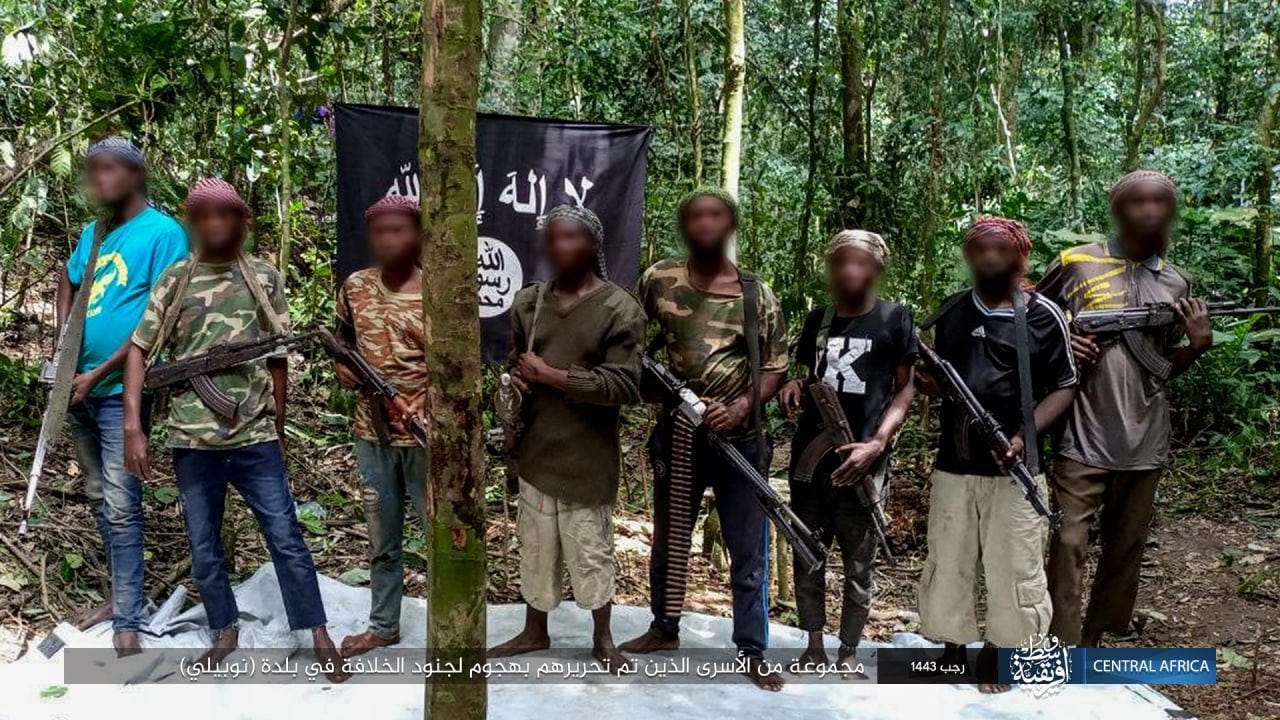
Interestingly, the attack coincided with US Secretary of State Antony Blinken’s visit to the DRC to discuss security issues and other matters. However, it is unclear if the timing of the operation is related in any way.
Battlefield Photos of the Week
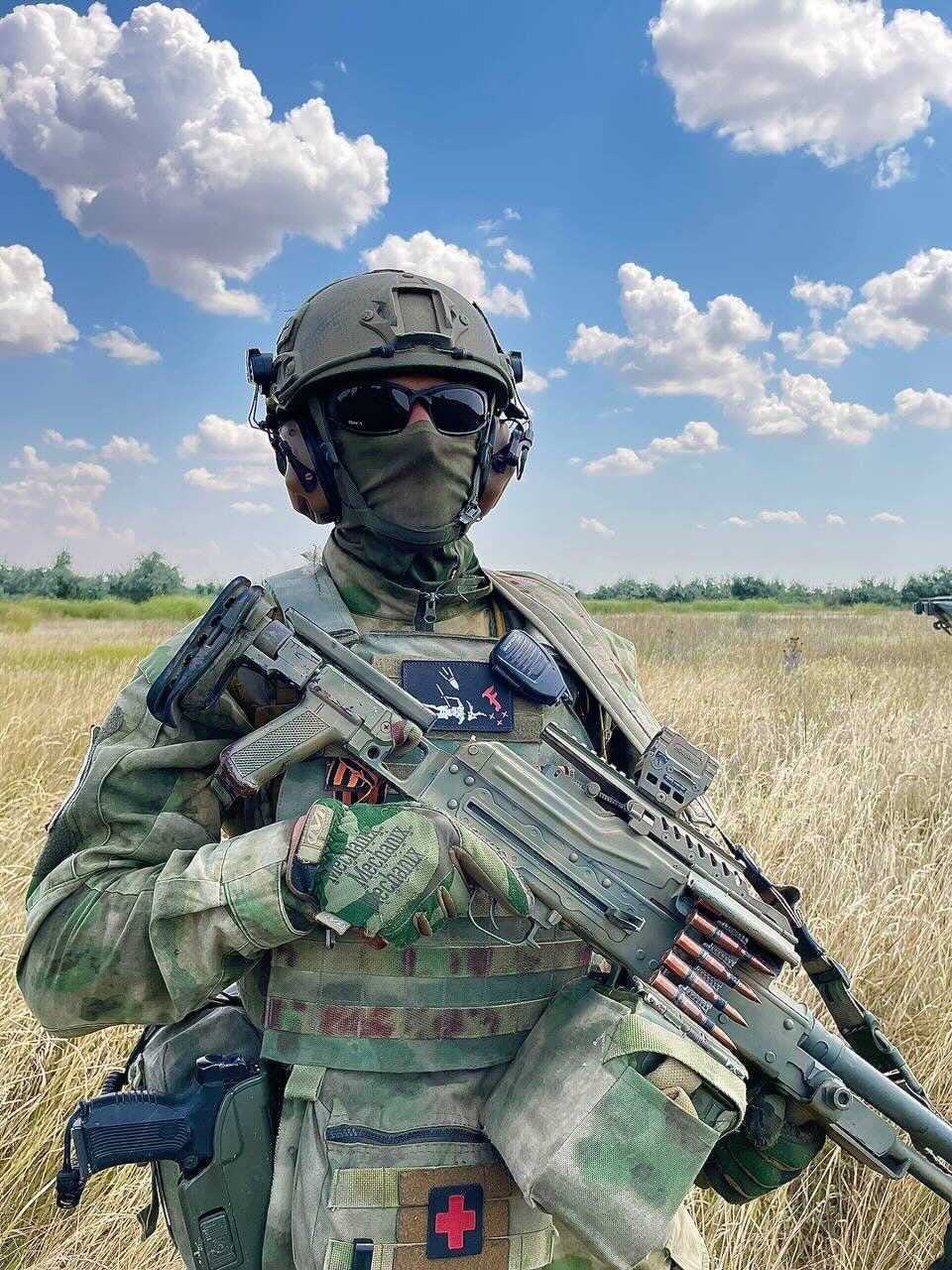

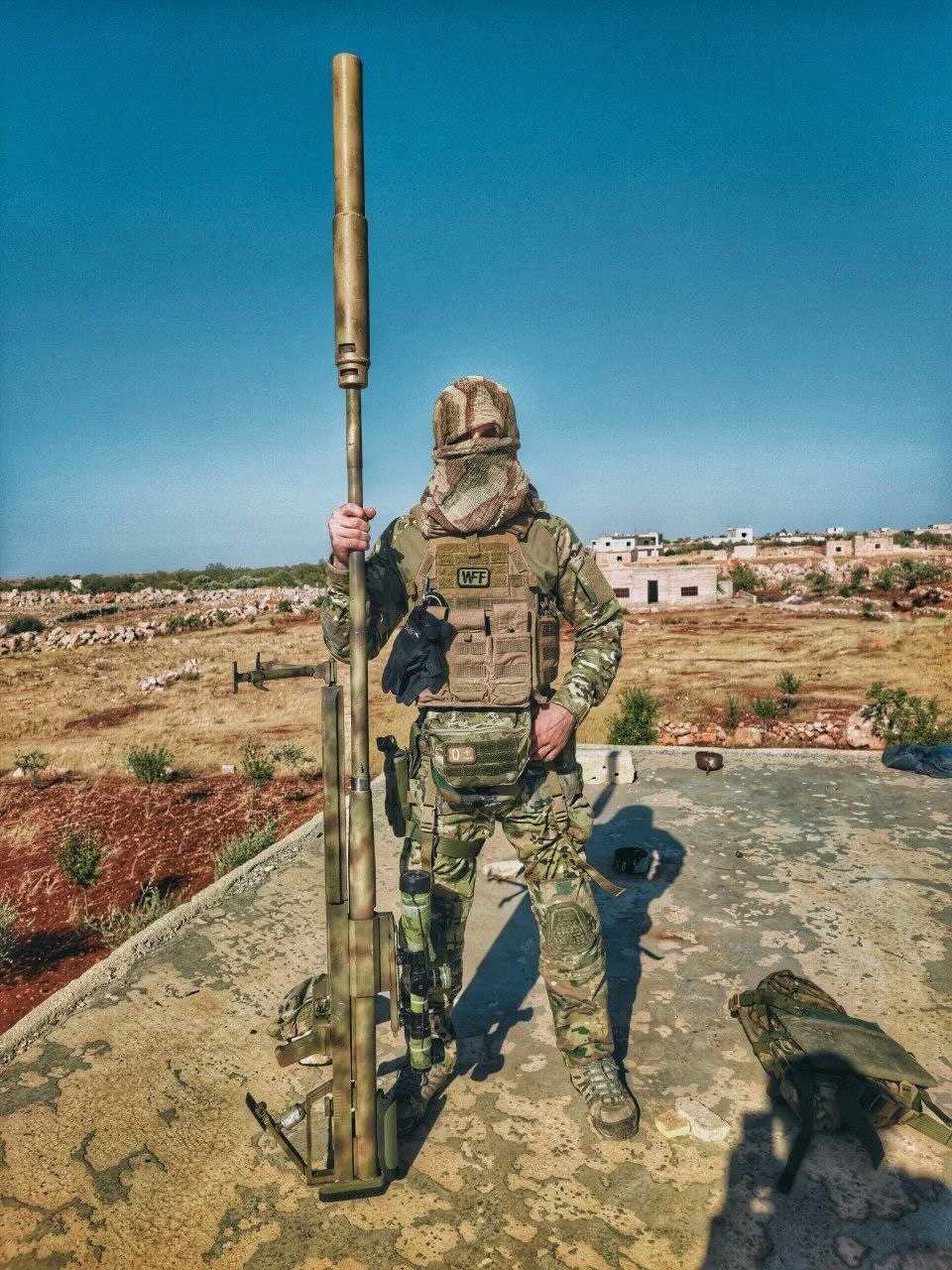
Thank you for reading, and enjoy the weekend!





